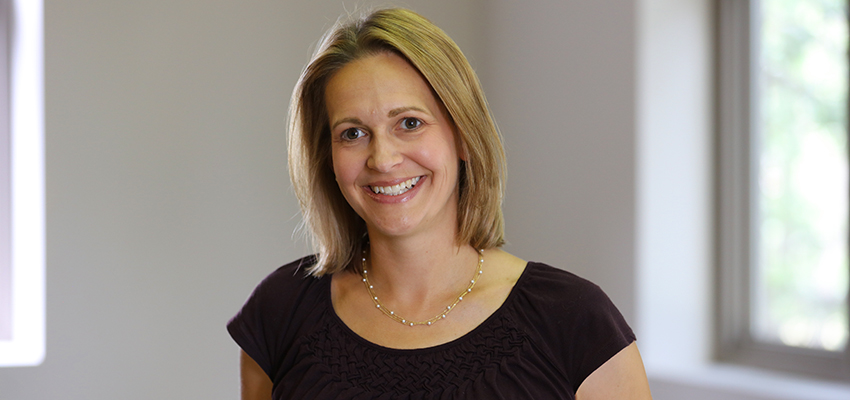
HWS News
21 November 2017 • Faculty • Research Kingery Article Addresses Loneliness in Anxious Youth
Associate Professor of Psychology Julie Newman Kingery is the co-author of an article on the social adjustment of youth with anxiety disorders that will appear in the December issue of the Journal of Anxiety Disorders.
The article records the findings from a study that Kingery and her colleagues conducted with 92 children aged 7-12 diagnosed with one or more of three anxiety-related disorders: generalized anxiety disorder, separation anxiety disorder or social anxiety disorder.
"Although related, the three are distinct. People diagnosed with society anxiety disorder experience extreme fears related to social situations," says Kingery, "whereas generalized anxiety disorder is more of a constant free floating sense of anxiety about the future, finances, etc. Separation anxiety disorder, meanwhile, is characterized by fears of being separated from a caregiver and/or harm befalling that individual."
For the study, the children participated in 10 weeks of cognitive behavioral therapy. This type of structured therapy helps patients learn new ways of reacting to external stimuli. It says, at its most basic level, that if patients are in control of their thoughts (such as their reaction to a perceived slight by a friend) they can then control that reaction and subsequent behavior.
The children were assessed before their treatment and after, with questionnaires that were filled out by parents, teachers and the young people themselves. This wealth of information from multiple sources gave Kingery and her team a pool of knowledge to draw upon when writing their results.
The information allowed the researchers to come to a number of conclusions. One key finding: youth with social anxiety disorder experienced a higher rate of loneliness. Even post-treatment, they reported levels of loneliness that were higher than the pre-treatment levels of the other children.
"These findings are particularly meaningful," writes Kingery and the research team in their report, "when considering that the experience of loneliness has been associated with a host of adverse outcomes including poor academic achievement, depression and suicidal ideation."
"The loneliness findings were important and unexpected. It surprised me that even with significant improvement in anxiety symptoms, youth with social anxiety disorder did not completely reach normative levels with respect to one aspect of their social functioning: loneliness," says Kingery.
"This insight would benefit from further research, and possibly could inform the treatment choices for children with social anxiety disorder in the future. If symptoms of anxiety return to the normal range post-treatment but social functioning does not, then perhaps we need to augment traditional cognitive behavioral therapy approaches for anxiety with social skills training or other treatment approaches aimed specifically at improving social functioning," says Kingery.
The study in the Journal of Anxiety Disorders is available through Dec. 11.
